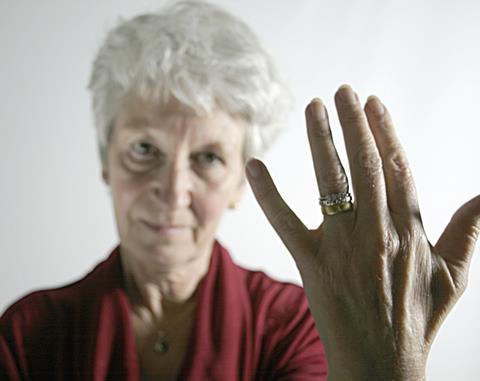It has been a while since private client departments were any law firm’s tranquil backwater. Katharine Freeland reports
The low down
The late Lord Templeman set out the ‘golden rule’ of mental capacity in will-making, but that did not stop his son from challenging his will. The world of the private client lawyer has become increasingly complex and fractious. What is driving this? Surging house prices make it worth contesting an estate. We are living longer, bringing questions of capacity for ever more people. And in any case, most people in England and Wales have no will. Cohabitation and multiple families have not helped. A looming recession has refocused minds on assets. Technology too is playing a part as we will live more of our lives digitally.
Private client is a broad church. It includes anything from commodified will-drafting for the person on the street to bespoke wealth structuring for billionaires. Private client practitioners must stay abreast of ever-evolving case law and regulatory change, but also – increasingly – understand how trusts, estates law and tax intersect with our digitised world.
And when wills or succession planning go wrong, the umbrella term ‘private client’ includes the contentious probate specialists who take over. Soaring house prices and land values – combined with a shifting societal trend towards multiple marriages and cohabitation – mean that one in four of us would challenge an estate, according to research by Direct Line.
Although Ministry of Justice statistics indicate that nearly 60% of people in England and Wales are without a will, making one is no shield against litigation. Even Lord Templeman, the late law lord who invented the ‘golden rule’ on mental capacity in the context of will-signing, had his will challenged by his son in the 2020 testamentary capacity case Goss-Custard v Templeman. Looking ahead, the threat of recession will only encourage litigation, as people seek to secure assets to which they feel entitled.
Truth be told
‘Lies and false promises’ in this context is not Emmanuel Macron’s description of Brexit, but the focus of the Chancery courts over recent years.
Succession-planning disputes over farms are a common source of proprietary estoppel claims; the concise definition of which is that an individual is given a promise that they then rely on to their detriment. Notably, in the farming context litigation can arise when, after years of hard work and low wages with assurances given on inheriting the farm, land or business in question, an individual does not receive what is expected (see also Practice Points, p29). A standout year for these claims was 2018. No fewer than 12 cases were heard in the High Court with varying degrees of success, a move that increased public awareness of this complicated means of redress.
‘Since 2018 we have certainly seen more people seeking advice on proprietary estoppel,’ says Katie Alsop, partner at Warwickshire firm Wright Hassall, who regularly advises on farm-related disputes. ‘They may not know what the doctrine is called, but they have heard about ideas behind it and applied it to their circumstances.’
Although many cases are mediated and settled, those which are not may go as far as the Court of Appeal or Supreme Court, as each case turns on its unique facts. The latest to be handed down is last month’s Supreme Court decision in Guest v Guest. As well as settling an ongoing controversy over approaches to ‘relief’ – the amount of money or assets to which the claimant is entitled – the judgment demonstrates a trend for claims to be brought in the lifetimes of the parties involved.
Fraudulent calumny – deliberately poisoning the testator’s mind against the natural beneficiary of the estate by casting aspersions against their character – has always been more difficult to prove. The trend was bucked in April 2022 when Whittle v Whittle became arguably only the second proven and decided case in the area.
Amanda Noyce, head of contested wills, trusts and inheritance disputes at RWK Goodman who advised the claimant in the case, explains: ‘Undue influence and fraudulent calumny tend to take place behind closed doors. Although you feel that your client has been wronged, without evidence there is little that can be done other than scrape together enough circumstantial evidence to encourage a settlement that – unhappily – will not quite match your client’s initial expectations. Whittle v Whittle deviated from the norm in that the facts were unusually clear-cut.’
In Whittle, the daughter Sonia encouraged her frail, dying father Gerald to cut her brother David and his wife Julie out of his will through the means of character assassination. She asserted that they were ‘psychopaths and criminals’. David was labelled as violent against women, accused of stealing Gerald’s cars and antiques, and said to have received a harassment order from police for breaking into Gerald’s house. Julie was accused of being a prostitute. Gerald subsequently changed his will, leaving nearly all his estate to Sonia. All the accusations were found to be untrue and the claim for fraudulent calumny stood.
Questions over success fees
‘No win, no fee’ arrangements are also a talking point after the Court of Appeal’s 2021 decision in Hirachand v Hirachand. A claim brought by an adult under the Inheritance (Provision for Family and Dependants) Act 1975, the decision means that, potentially, a claimant who funds their case through a conditional fee agreement could recover part (or all) of the success fee from the defendant. On the face of it, this seems contrary to sections 44 and 46 of the Legal Aid, Sentencing and Punishment of Offenders Act 2012, under which a success fee and after-the-event insurance premium are not payable by the losing defendant, but would be payable by the claimant. In Hirachand, the court treated the success fee as a debt owed by the claimant, forming part of the claimant’s current financial position, which the court is obliged to assess when deciding whether to make an award under the act.
‘The decision of the Court of Appeal is not carte blanche for the recovery of success fees,’ says Noyce. ‘This approach works only in cases such as Hirachand where the claimant is in particularly straitened financial circumstances and where the award is sufficiently limited as to mean that the success fee would otherwise deny the proper benefit of an overall award to the claimant.’
Adult Inheritance Act claims already carry a certain amount of risk so Hirachand has made out-of-court settlements even more attractive.
Elder abuse and predatory marriage
Although financial abuse of the vulnerable is not confined to elderly people, they are a common target. Often perpetrated by family members, financial abuse takes many forms, from coercive behaviour to the misuse of powers of attorney to siphon off assets. Private client practitioners are familiar with the process for establishing mental capacity for will-signing but should also be on the alert for subtler signs of financial abuse: the transfer of a car, or shares; a sudden increase in the need for funds; or the appearance of previously unknown relatives or ‘friends’.

Civil law currently provides few protections against predatory marriage – the forced marriage of an individual, often elderly, whose mental capacity is in doubt or who is vulnerable to undue influence. ‘As it stands, a marriage can take place in secret without the knowledge of family members or friends as there is no real reporting requirement even if there’s a power of attorney in place,’ explains Andrew Bishop, a principal associate in Shoosmiths’ disputed wills and trusts team. ‘In nearly all cases, the marriage automatically revokes any previous will, so when the vulnerable person dies the predator receives a large percentage – perhaps all – of the estate under the intestacy rules tax-free. As spouse, they have automatic control over the estate and can determine all the funeral arrangements.’
Shoosmiths (with New Square Chambers, Parklane Plowden Chambers and Halcyon Doctors) advised MP Fabian Hamilton on his private member’s bill – the Marriage and Civil Partnership (Consent) Bill – designed to prevent predatory marriage. First introduced in 2018, the bill was derailed by Brexit then Covid, but raised again at PMQs in June 2021. ‘We have proposed a number of measures that would give those with an interest in the validity of the marriage the right to challenge its validity,’ says Bishop. ‘These include changing the law so that marriage no longer revokes a previous will and publishing public notices of intention of marriage. We also recommend better training for registrars to ensure the safeguarding of vulnerable individuals.’
Meeting the digital world
Although most people still hold their assets in property or stocks and shares, rather than cryptocurrency and non-fungible tokens, the possible presence of digital assets should be on the watch list of every private client practitioner. In practice this means adding a question about digital assets to enquiries, ensuring there is a record of how these are held and accessed, as well as considering any wider implications.
‘We are seeing more clients investing in cryptocurrencies and other forms of digital assets,’ says Claire Harris, partner in the private client and tax team at Withers. ‘This affects the type of wealth management structures we would recommend, taking into account where these digital assets are located and the tax regime that they fall under.’
The requirements of the Trust Registration Service (TRS), the UK’s register of the beneficial ownership of trusts, have fed into discussions with clients over how to manage personal information in the digital sphere. As well as extending to UK and some non-UK trusts regardless of whether or not the trust is liable to pay tax, since September the TRS has been open to requests for information from those with a ‘legitimate interest’ in a trust, including authorities in other countries. Although safeguards are in place, clients are wary of too much personal information leaking into the public domain.

‘Cybersecurity concerns now form a regular part of our conversations with clients,’ says Harris. ‘Private client practitioners need to know the potential risks and how to access the cybersecurity expertise clients need to protect their personal information in the digital realm.’
With trusts in some circumstances proving less tax-efficient and disclosure requirements becoming more onerous, some clients are turning to non-trust structuring, such as partnerships or family investment companies, as an alternative, she says.
Despite being another layer of unwanted admin for clients and practitioners, most consider that the TRS processes are reasonably straightforward to follow. By contrast, practitioners continue to be frustrated by the government’s online probate application service, citing long delays, mistakes and difficulties contacting staff. ‘It’s a bloody mess,’ says one. ‘Before digitalisation, it used to be first-class. Now, although clients understand that we are doing all we can, its poor performance prevents us from providing a streamlined and efficient service.’
Autumn and winter
With the autumn budget looming, private client practitioners are anticipating the measures chancellor Jeremy Hunt may announce to try to fill the UK’s reported £60bn ‘black hole’ in its finances.
‘Clients are reviewing the performance of their investment portfolios but also trying to get ahead of any changes to the tax system that may result in greater liabilities,’ says Duncan Bailey, head of private client at north-west firm Brabners. ‘This includes, for example, exploring ways to trigger a potential CGT charge now rather than later in case the rate rises.’
Wills incorrectly signed and witnessed during the in-person restrictions of the pandemic are also widely expected to be an incoming trend. Laura Abbott, a solicitor in Shoosmiths’ disputed wills and trusts team, concludes: ‘As yet we have not seen many cases of invalid wills executed during Covid, but this is definitely coming down the track.’
Katharine Freeland is a freelance journalist
































No comments yet